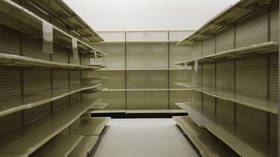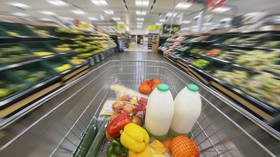Russia-Ukraine conflict could trigger global food shortage – UN
The warring countries are major exporters of agricultural products

Following a dramatic global food shortage due to the Covid pandemic, disruption to agricultural production in Russia and Ukraine due to the ongoing military conflict could seriously exacerbate global food insecurity, said Qu Dongyu, director-general of the United Nations Food and Agriculture Organization (FAO).
In a statement on Friday, the FAO chief said Russia and Ukraine play a substantial role in the global food production and supply.
“Russia is the world’s largest exporter of wheat, and Ukraine is the fifth-largest. Together, they provide 19% of the world’s barley supply, 14% of wheat, and 4% of maize, making up more than one-third of global cereal exports,” he said.
Qu added that the two nations are also lead suppliers of rapeseed and account for 52% of the world’s sunflower oil export market. Global fertilizer supply is also highly concentrated, with Russia the lead producer.
He explained that supply chain and logistical disruptions on Ukrainian and Russian grain and oilseed production, as well as restrictions on Russian exports, will have significant food security repercussions.
“This is especially true for some 50 countries that depend on Russia and Ukraine for 30% or more of their wheat supply,” Qu said. “Many of them are least developed countries or low-income, food-deficit countries in Northern Africa, Asia and the Near East. Many European and Central Asian countries rely on Russia for over 50% of their fertilizer supply, and shortages there could extend to next year.”
Food prices, which were already on the rise since the second half of 2020, reached an all-time high in February 2022 due to high demand, input and transportation costs, and port disruptions.
Data from the UN agency shows that global prices of wheat and barley rose 31% over the course of 2021. Rapeseed oil and sunflower oil prices soared more than 60%. High demand and volatile natural gas prices have also driven up fertilizer costs. Thus, the price of urea, a key nitrogen fertilizer, has increased more than threefold in the past 12 months.
“The conflict’s intensity and duration remain uncertain. The likely disruptions to agricultural activities of these two major exporters of staple commodities could seriously escalate food insecurity globally, when international food and input prices are already high and volatile,” Qu said.
https://www.rt.com/business/551715-russia-ukraine-conflict-food-shortage/


0 Comments:
Post a Comment
Subscribe to Post Comments [Atom]
<< Home